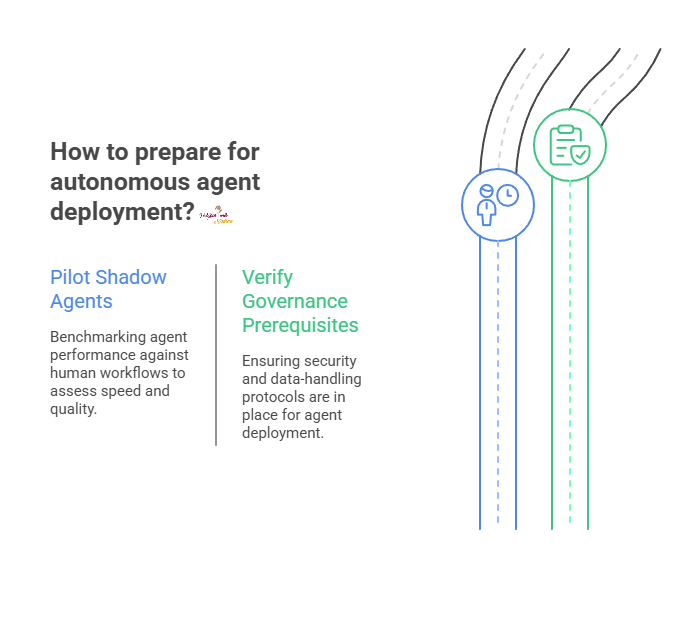OpenAI's Platform Seizure: The AI Operating System is Here
Why Your Software Budget Must Immediately Fund Agentic AI
"The highest-quality AI doesn’t just deliver a better answer; it delivers a better infrastructure for human strategy and governance. This is the new standard." — Nadina D. Lisbon
Hello Sip Savants! 👋🏾
The most significant takeaway from OpenAI’s DevDay 2025 is a profound strategic shift that demands executive attention. The company is no longer a model vendor; it is actively building the AI Operating System for the next decade. Yesterday’s announcements weren’t incremental upgrades; they were a blueprint for seizing control of the entire application layer, directly challenging traditional enterprise software as the core operating system of your business. Executive teams should prioritize action now. For your organization, this means the AI budget isn’t just growing; it’s about to merge with your entire software and automation budget. Delaying a comprehensive platform strategy review now is delaying the future.
3 Tech Bites:
📱 The ChatGPT Application Hub (Apps SDK)²
Yesterday, at DevDay, OpenAI introduced the Apps SDK, immediately transforming the ChatGPT interface (with over 800 million weekly users) into an application platform. Developers can now build full, interactive apps inside the chat, not just simple plugins. Launch partners like Expedia and Canva demonstrate that ChatGPT is becoming the primary front-end interface for external services, effectively bypassing existing app stores and traditional search.
🏗️ Industrializing Autonomy (AgentKit)³
The debut of AgentKit provides a dedicated, high-quality developer platform for building autonomous AI agents. This includes a visual Agent Builder and essential enterprise tooling like the Connector Registry for secure data integration. This move is a direct, aggressive assault on the workflow automation market. AgentKit aims to replace fragmented, custom-coded agent solutions with a single, end-to-end environment purpose-built for reliable, complex, and auditable enterprise workflows.
⚙️ The Compute and Governance Foundation (GPT-5 Pro & AMD)¹,⁵
DevDay also delivered the necessary infrastructure for scaling. The API release of GPT-5 Pro signals new heights in reasoning and accuracy required for high-stakes finance, legal, and healthcare applications. Crucially, the AMD strategic partnership is a pre-emptive defense against future compute bottlenecks, ensuring a stable, diverse, and cost-optimized supply chain for the massive scale required by AgentKit and future models like Sora 2. The platform’s engine is now guaranteed not to stall.
5-Minute Strategy
🧠 Platform Utility
Here are some steps you can take to assess your organization’s readiness to adopt autonomous agents to capture early ROI and competitive advantage.
Pilot Shadow Agents
Consult with your IT and Engineering Teams to select three non-customer facing, high-frequency, manual workflows (e.g., procurement order tracking, internal report generation).
Task them to run these as “Shadow Agent” projects to benchmark the speed and quality of an AgentKit prototype against the existing human workflow.
Verify Governance Prerequisites
Consult with your CISO or Legal Counsel to confirm: “Do we have a pre-approved security and data-handling protocol for a model (an agent) that can read and write to internal systems (via the Connector Registry)?”
A clear Yes is the prerequisite for production deployment.
1 Big Idea
💡 Turning AI Intelligence into an Exclusive Platform Utility
The true meaning of DevDay 2025 is that OpenAI is transitioning from being a best-in-class model vendor to being the AI utility layer that every other piece of software must integrate with. This is their ultimate competitive strategy, designed to lock in the developer ecosystem and maximize high-margin API usage.
This strategy is executed by focusing on friction and auditability. Historically, building sophisticated AI agents was a frustrating process requiring patchwork solutions. AgentKit eliminates this friction by providing a unified, visual environment. However, this convenience comes with a powerful lock-in: the Agent Builder is optimized, and in some cases restricted, to work exclusively with OpenAI models. As the most demanding and financially valuable enterprise workflows which require the best governance and audit trails (like Trace Grading and Guardrails) migrate to AgentKit, those enterprises become deeply dependent on OpenAI’s full stack, from the model up to the deployment interface.
Furthermore, by embedding the Apps SDK directly into ChatGPT, OpenAI is creating a two-sided network effect. Users want the convenience of a conversational “Super App,” and developers want access to that massive user base. This positions OpenAI to potentially challenge the distribution power of mobile operating systems and cloud marketplaces, making ChatGPT the default discovery engine for AI-powered services. The $500 billion valuation (based on recent employee share sales) becomes plausible when the company is effectively building the foundation for the next generation of computing. Executive teams must now plan for a future where their competitive edge depends not just on using AI, but on deeply integrating their operations into the single, most powerful, and best-governed AI platform.
The future of work is about strategically choosing your co-pilot. Share this newsletter with your leadership team and start the platform discussion today!
P.S. Know someone else who could benefit from a sip of CRM wisdom? Share this newsletter and help them brew up stronger customer relationships!
P.P.S. If you found these AI insights valuable, a contribution to the Brew Pot helps keep the future of work brewing.
Resources
Sip smarter, every Tuesday. (Refills are always free!)
Cheers,
Nadina
Host of TechSips with Nadina | Chief Strategy Architect ☕️🍵


